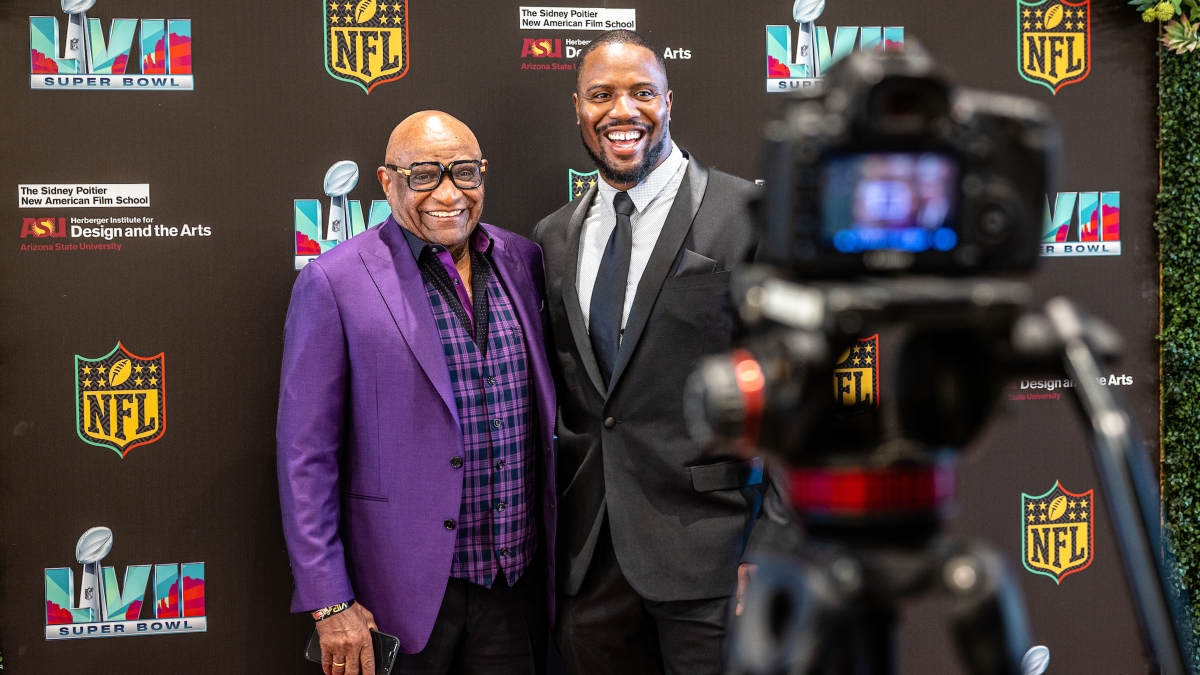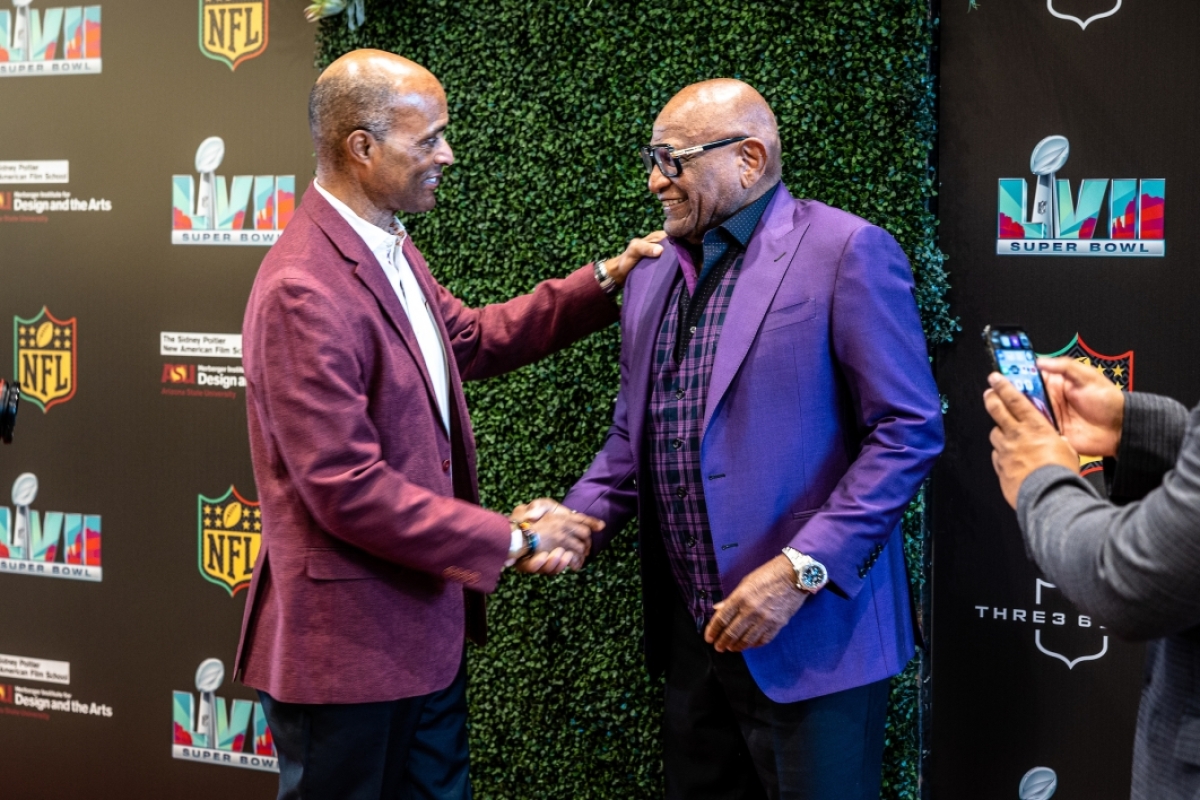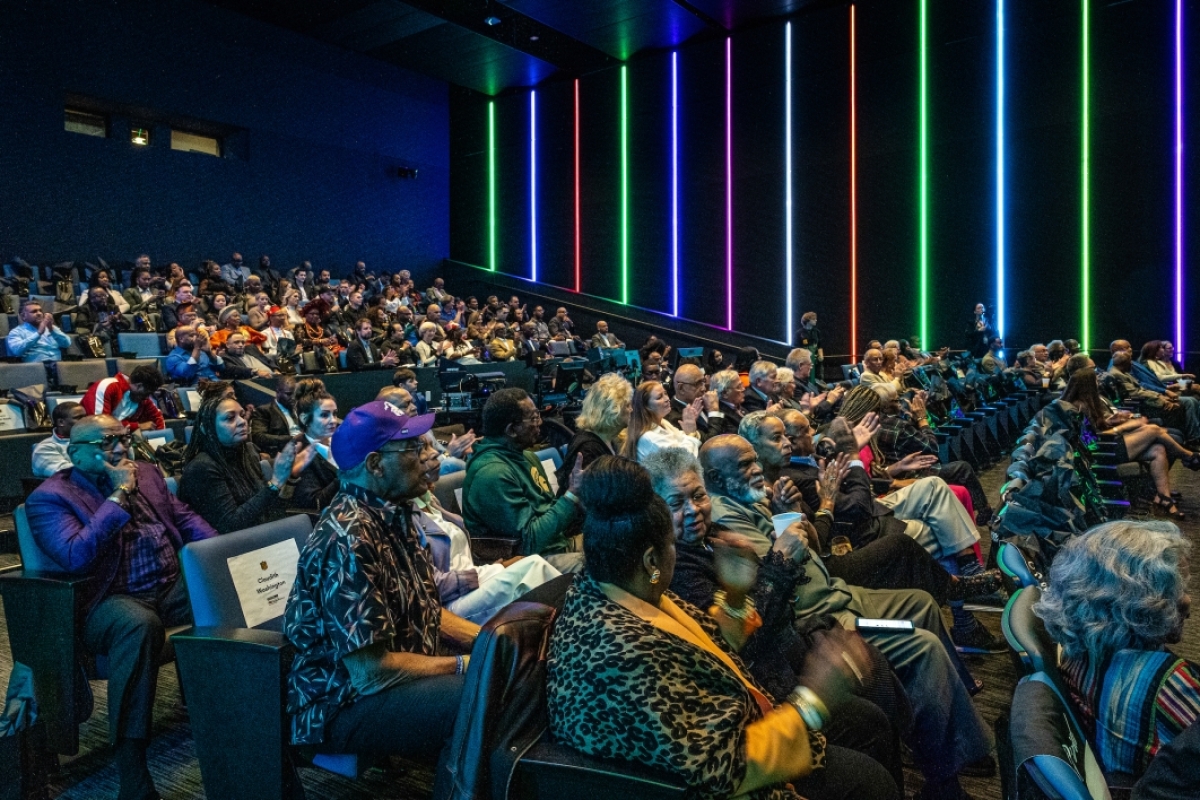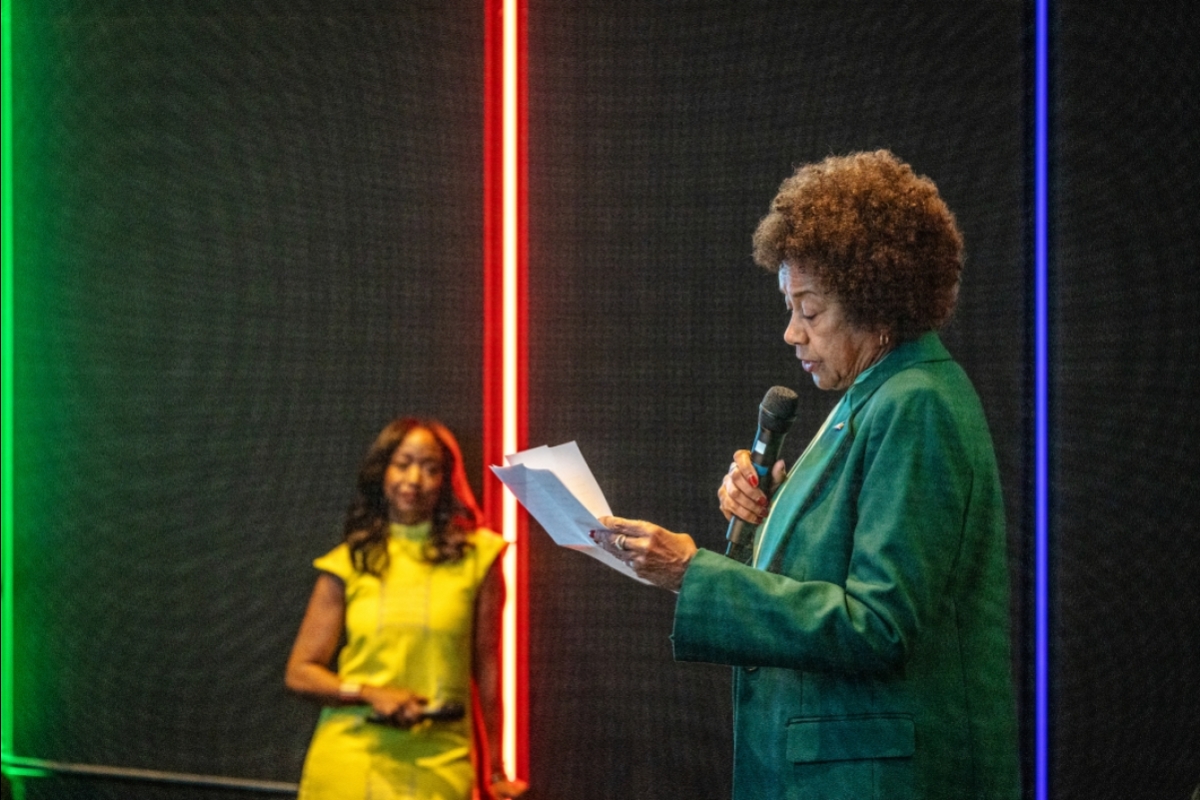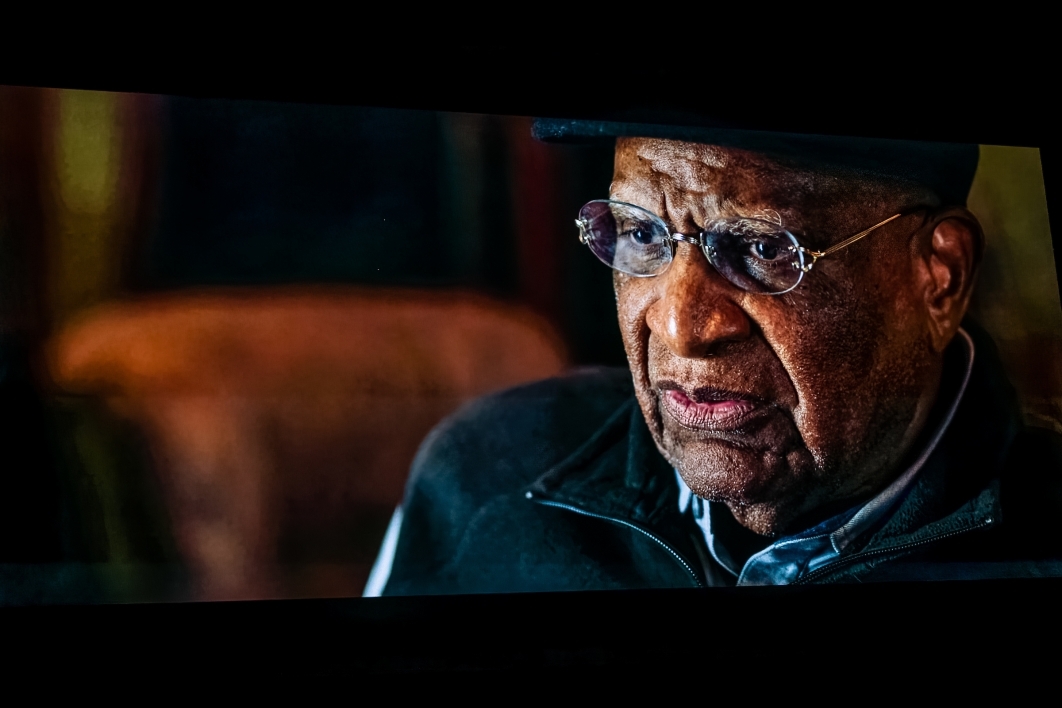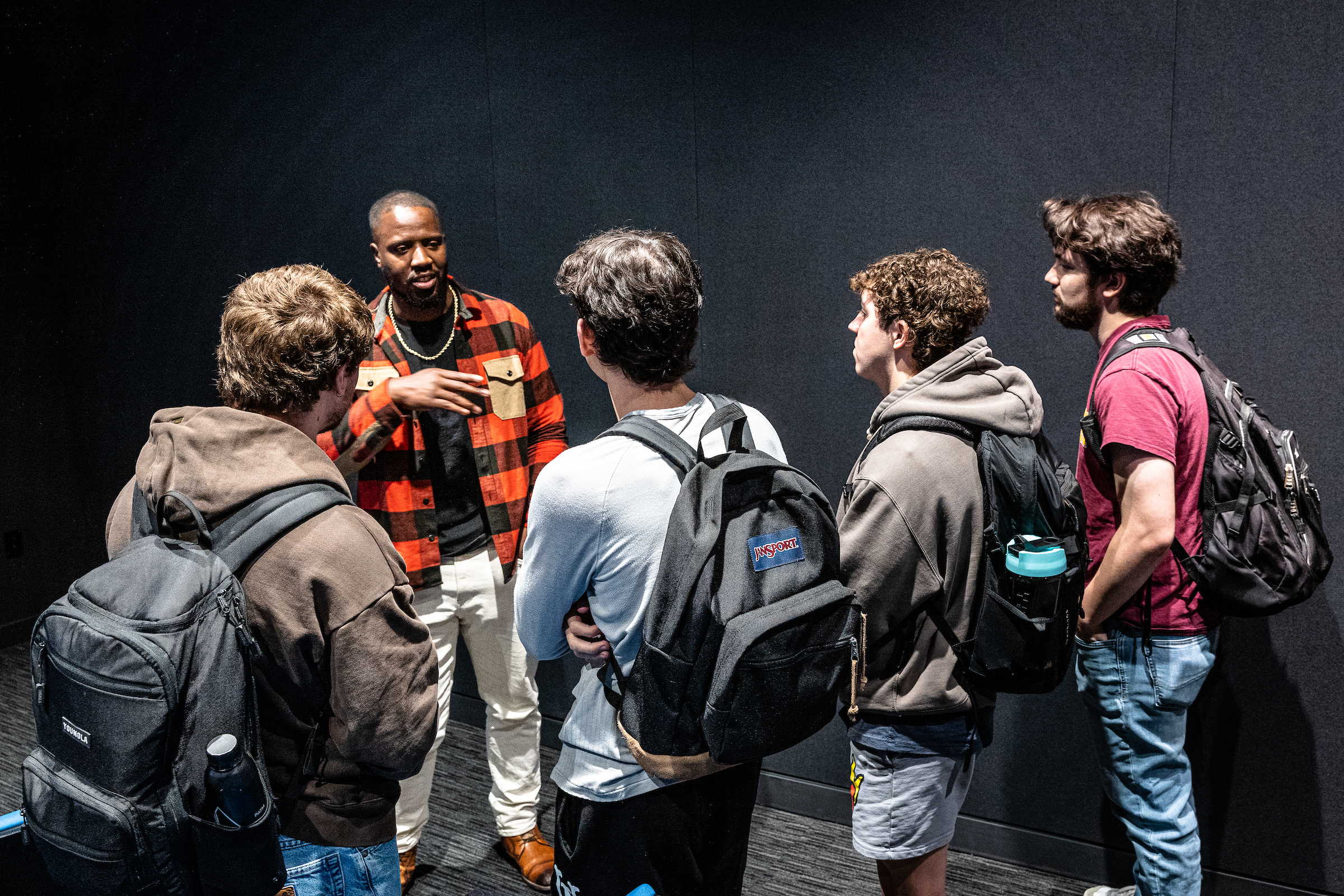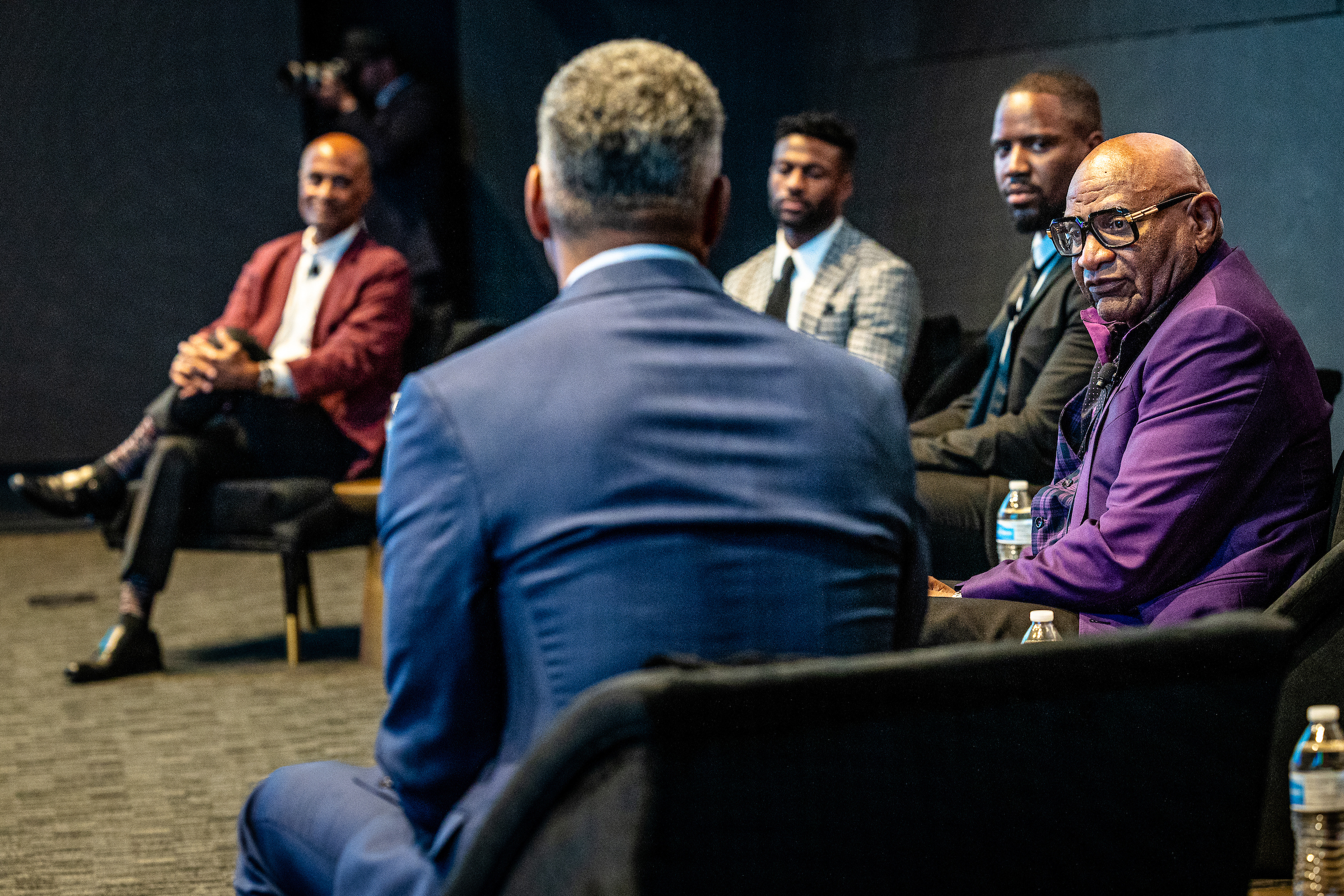Editor’s note: This story is featured in the 2023 year in review.
The NFL marked Black History Month at Arizona State University on Wednesday with a screening of a new documentary about a Black player’s journey from the segregated South to a national college championship and a career in the NFL.
“The Indelible Legacy of Jimmy Raye,” produced by NFL 360, was shown at the Media and Immersive eXperience — or MIX — Center in downtown Mesa. The screening was preceded by a red-carpet event, a cocktail reception and a master class for students in The Sidney Poitier New American Film School at ASU. After the screening, Raye joined a panel discussion about his life and career.
The events were part of the league’s Super Bowl week festivities leading up to Sunday’s game at State Farm Stadium in Glendale, which will be the first Super Bowl to feature two Black starting quarterbacks — Patrick Mahomes of the Kansas City Chiefs and Jalen Hurts of the Philadelphia Eagles.
Raye is a prominent figure in the integration of football. He became one of the first Black quarterbacks in college football history, leading Michigan State University to the national championship in 1966. Along with several Black teammates — some of whom were at Wednesday’s ASU event — Raye proved that a Black man could excel at a team’s most important position and that a racially integrated team could work together to succeed. Shortly afterward, teams in Southern states began recruiting Black players.
The screening and Raye’s presence were appropriate at the MIX Center, said Cheryl Boone Isaacs, founding director of The Sidney Poitier New American Film School, which is named for the first Black man to win a best actor Academy Award.
“There is an enduring connection between Sidney Poitier and Mr. Raye,” she told the crowd before the documentary was shown.
“Both of these men were on the leading edge of change in their respective fields. Both of these amazing men opened doors that had been shut for way too long.
“They redefined misguided perceptions of who can and who can’t.”
Before the screening, Angela Ellis, NFL Media vice president and event organizer, said, “The man who set the stage for Jalen Hurts and Patrick Mahomes — and all of the NFL’s Black quarterbacks — is Jimmy Raye.
"We wanted to showcase his story and have this conversation tonight to explore how far we’ve come since Jimmy blazed a trail through segregated fields, and how far we still have to go.”
“The Indelible Legacy of Jimmy Raye” follows Raye’s life, from growing up in segregated Fayetteville, North Carolina, to his days as a star quarterback in high school and at Michigan State. After college, he played for a few seasons in the NFL, but not as a quarterback. After an injury ended his playing career, he went on to be a successful coach, working for 36 years with 10 teams. He interviewed several times for head coaching positions but was never hired. He retired from coaching in 2010 and is now a senior advisor to Troy Vincent, NFL executive vice president of football operations.
The documentary also stars Emmanuel Sanders, a recently retired player after 12 seasons, who describes how important it was for him, as a Black player from a small Texas town, to have Mike Tomlin, a Black man, as his head coach when he was drafted by the Pittsburgh Steelers.
“He understood the culture that I came from,” Sanders says in the film.
“He understood that I came from a poverty situation and overnight I became almost a millionaire. I didn’t know what to do with that but he’s been there. … He knew the cultural differences I was having.
“When I see that there are not a lot of African American coaches, but the majority of the players in the National Football League are African American, it’s kind of mind boggling when you think about it.”
Of the NFL’s 32 teams, three have Black head coaches.
The film traces the ripple effects of Raye’s influence. Tony Dungy, the first Black head coach to win the Super Bowl, in 2006 with the Indianapolis Colts, used to toss a football around as a boy, pretending he was Jimmy Raye.
“Jimmy led the path in so many ways,” says Dungy, who hired Mike Tomlin. “When I became a head coach, it became important for me to do the same thing, so I was on the lookout for young, aggressive, smart African American coaches because I wanted them to get the same opportunity I had.”
Osahon Tongo, the director and producer of the 35-minute documentary, was part of a team from NFL 360 who gave a master class in filmmaking to ASU students.
Osahon Tongo, the NFL 360 producer and director of "The Indelible Legacy of Jimmy Raye," spoke with ASU students after giving a master class in filmmaking at the MIX Center in downtown Mesa on Wednesday. Photo by Charlie Leight/ASU News
He described the background of one of the film’s most moving moments: Sanders and Raye are in an open-air building in Raye’s hometown of Fayetteville. In the treatment he created before filming, Tongo decided to have Samuels and Raye sit down on a bench there and talk.
In the film, Sanders asks Raye to sit down and Raye says, “No. I don’t want to sit here.” Then Raye reveals that the structure is the city’s former slave market, now a memorial.
“I didn’t know he would say that at the slave market,” Tongo told the students.
“It just naturally came up. You can feel his uneasiness.”
He described how, in post-production, he emphasized the moment with music that’s meant to elicit discomfort.
“He was uncomfortable and in my head I was like, ‘How do I make him more comfortable?’ But then I had to be like, ‘We can capture him going through these emotions.’
“We’re painting with sadness and we’re painting with melancholy and we’re painting with sorrow,” he said.
“We’re witnessing his discomfort.”
There is also triumph. In the film, Raye says of his Michigan State team, “I think it changed college football because it proved that, for the people in the South, that an integrated, all-inclusive team could work together and win together.”
NFL 360 produces short documentaries, usually about 10 to 14 per year, about five to 30 minutes each, on stories that happen off the playing field, including topics such as mental health and LGBTQ issues. “The Indelible Legacy of Jimmy Raye” is NFL 360’s Black History Month special.
Tongo described how he learned to use empathy and emotion to tell a story.
“I came from a football background, where if you cry you’re a punk,” said Tongo, who played at Georgia Tech. “But I came to realize that sensitivity is a strength, not a weakness.”
In the panel discussion after the film, the soft-spoken Raye said he was humbled by the accolades.
“To be respected as a coach and as a man is pretty gratifying,” he said.
Raye said that while he aspired to be a head coach, “I understood the landscape and the denial of opportunity that was prevalent during the time I was involved in it.
“But I never second guessed that. I worked and had the respect of my peers, and that in itself was a major accomplishment.”
But he lamented the low number of Black head coaches today.
“We were climbing the ladder at 100 miles an hour and the goal posts were still moving and that hasn’t changed much,” he said.
Jimmy Raye (right) speaks during the panel discussion after the screening of "The Indelible Legacy of Jimmy Raye” documentary, which highlighed his football career. Photo by Charlie Leight/ASU News
During the discussion, Ray Anderson, vice president of university athletics at ASU, marveled at Raye’s impact on so many Black players and coaches.
“You realize that because of his effect, those gentlemen then had a tremendous impact on me and were a significant part of my career, including getting to the point where I’m the (athletic director) at ASU,” he said.
Anderson talked about how, as a sports agent and then an NFL executive, he was often the only Black person in the room and it was important to understand the caste system in the country.
“You have to be persistent and you have to understand that you have to be better and you’re going to have to not be told ‘no.’ That’s been my path.”
Top image: Former quarterback Jimmy Raye poses with NFL 360 producer and director Osahon Tongo on the red carpet, Feb. 8, at the Media and Immersive eXperience (MIX) Center in downtown Mesa for the documentary screening of “The Indelible Legacy of Jimmy Raye.” Photo by Charlie Leight/ASU News
More Arts, humanities and education

ASU professor explores theater, dance for young children in new book
Arizona State University Assistant Professor Amanda Pintore believes in the artistic capacity of very young children. She's hoping to spread that awareness to others with the recent publication of…
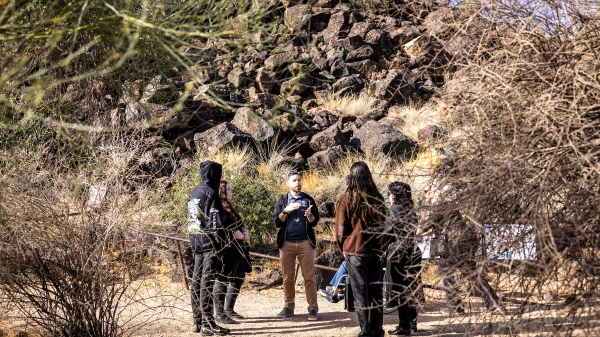
Petroglyph preserve celebrates 30th anniversary with ancient, modern tales
The Deer Valley Petroglyph Preserve provides a beautiful walk through a pristine desert where chuckwalla lizards are as plentiful as the cacti that comes in many shapes and sizes.It’s also a step…

Kaleidoscope short film contest inspires powerful binational filmmaking in its second year
“We come to this country not to steal anybody’s jobs but to take advantage of the opportunities that the rest ignore. We’ve been taking care of the American soil for many years. But our hands will…
